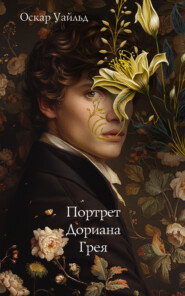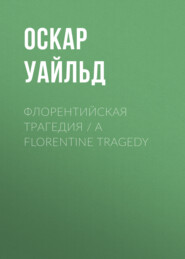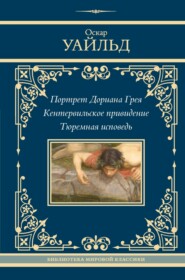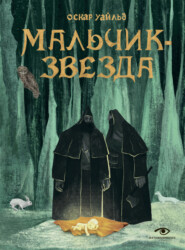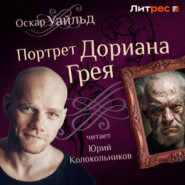По всем вопросам обращайтесь на: info@litportal.ru
(©) 2003-2025.
✖
Lord Arthur Savile's Crime; The Portrait of Mr. W.H., and Other Stories
Настройки чтения
Размер шрифта
Высота строк
Поля
‘A shilling an hour.’
‘And how much do you get for your picture, Alan?’
‘Oh, for this I get two thousand!’
‘Pounds?’
‘Guineas. Painters, poets, and physicians always get guineas.’
‘Well, I think the model should have a percentage,’ cried Hughie, laughing; ‘they work quite as hard as you do.’
‘Nonsense, nonsense! Why, look at the trouble of laying on the paint alone, and standing all day long at one’s easel! It’s all very well, Hughie, for you to talk, but I assure you that there are moments when Art almost attains to the dignity of manual labour. But you mustn’t chatter; I’m very busy. Smoke a cigarette, and keep quiet.’
After some time the servant came in, and told Trevor that the framemaker wanted to speak to him.
‘Don’t run away, Hughie,’ he said, as he went out, ‘I will be back in a moment.’
The old beggar-man took advantage of Trevor’s absence to rest for a moment on a wooden bench that was behind him. He looked so forlorn and wretched that Hughie could not help pitying him, and felt in his pockets to see what money he had. All he could find was a sovereign and some coppers. ‘Poor old fellow,’ he thought to himself, ‘he wants it more than I do, but it means no hansoms for a fortnight’; and he walked across the studio and slipped the sovereign into the beggar’s hand.
The old man started, and a faint smile flitted across his withered lips. ‘Thank you, sir,’ he said, ‘thank you.’
Then Trevor arrived, and Hughie took his leave, blushing a little at what he had done. He spent the day with Laura, got a charming scolding for his extravagance, and had to walk home.
That night he strolled into the Palette Club about eleven o’clock, and found Trevor sitting by himself in the smoking-room drinking hock and seltzer.
‘Well, Alan, did you get the picture finished all right?’ he said, as he lit his cigarette.
‘Finished and framed, my boy!’ answered Trevor; ‘and, by the bye, you have made a conquest. That old model you saw is quite devoted to you. I had to tell him all about you – who you are, where you live, what your income is, what prospects you have – ’
‘My dear Alan,’ cried Hughie, ‘I shall probably find him waiting for me when I go home. But of course you are only joking. Poor old wretch! I wish I could do something for him. I think it is dreadful that any one should be so miserable. I have got heaps of old clothes at home – do you think he would care for any of them? Why, his rags were falling to bits.’
‘But he looks splendid in them,’ said Trevor. ‘I wouldn’t paint him in a frock coat for anything. What you call rags I call romance. What seems poverty to you is picturesqueness to me. However, I’ll tell him of your offer.’
‘Alan,’ said Hughie seriously, ‘you painters are a heartless lot.’
‘An artist’s heart is his head,’ replied Trevor; ‘and besides, our business is to realise the world as we see it, not to reform it as we know it. À chacun son métier. And now tell me how Laura is. The old model was quite interested in her.’
‘You don’t mean to say you talked to him about her?’ said Hughie.
‘Certainly I did. He knows all about the relentless colonel, the lovely Laura, and the £10,000.’
‘You told that old beggar all my private affairs?’ cried Hughie, looking very red and angry.
‘My dear boy,’ said Trevor, smiling, ‘that old beggar, as you call him, is one of the richest men in Europe. He could buy all London to-morrow without overdrawing his account. He has a house in every capital, dines off gold plate, and can prevent Russia going to war when he chooses.’
‘What on earth do you mean?’ exclaimed Hughie.
‘What I say,’ said Trevor. ‘The old man you saw to-day in the studio was Baron Hausberg. He is a great friend of mine, buys all my pictures and that sort of thing, and gave me a commission a month ago to paint him as a beggar. Que voulez-vous? La fantaisie d’un millionnaire! And I must say he made a magnificent figure in his rags, or perhaps I should say in my rags; they are an old suit I got in Spain.’
‘Baron Hausberg!’ cried Hughie. ‘Good heavens! I gave him a sovereign!’ and he sank into an armchair the picture of dismay.
‘Gave him a sovereign!’ shouted Trevor, and he burst into a roar of laughter. ‘My dear boy, you’ll never see it again. Son affaire c’est l’argent des autres.’
‘I think you might have told me, Alan,’ said Hughie sulkily, ‘and not have let me make such a fool of myself.’
‘Well, to begin with, Hughie,’ said Trevor, ‘it never entered my mind that you went about distributing alms in that reckless way. I can understand your kissing a pretty model, but your giving a sovereign to an ugly one – by Jove, no! Besides, the fact is that I really was not at home to-day to any one; and when you came in I didn’t know whether Hausberg would like his name mentioned. You know he wasn’t in full dress.’
‘What a duffer he must think me!’ said Hughie.
‘Not at all. He was in the highest spirits after you left; kept chuckling to himself and rubbing his old wrinkled hands together. I couldn’t make out why he was so interested to know all about you; but I see it all now. He’ll invest your sovereign for you, Hughie, pay you the interest every six months, and have a capital story to tell after dinner.’
‘I am an unlucky devil,’ growled Hughie. ‘The best thing I can do is to go to bed; and, my dear Alan, you mustn’t tell any one. I shouldn’t dare show my face in the Row.’
‘Nonsense! It reflects the highest credit on your philanthropic spirit, Hughie. And don’t run away. Have another cigarette, and you can talk about Laura as much as you like.’
However, Hughie wouldn’t stop, but walked home, feeling very unhappy, and leaving Alan Trevor in fits of laughter.
The next morning, as he was at breakfast, the servant brought him up a card on which was written, ‘Monsieur Gustave Naudin, de la part de M. le Baron Hausberg.’ ‘I suppose he has come for an apology,’ said Hughie to himself; and he told the servant to show the visitor up.
An old gentleman with gold spectacles and grey hair came into the room, and said, in a slight French accent, ‘Have I the honour of addressing Monsieur Erskine?’
Hughie bowed.
‘I have come from Baron Hausberg,’ he continued. ‘The Baron – ’
‘I beg, sir, that you will offer him my sincerest apologies,’ stammered Hughie.
‘The Baron,’ said the old gentleman with a smile, ‘has commissioned me to bring you this letter’; and he extended a sealed envelope.
On the outside was written, ‘A wedding present to Hugh Erskine and Laura Merton, from an old beggar,’ and inside was a cheque for £10,000.
When they were married Alan Trevor was the best man, and the Baron made a speech at the wedding breakfast.
‘Millionaire models,’ remarked Alan, ‘are rare enough; but, by Jove, model millionaires are rarer still!’
THE PORTRAIT OF MR. W. H
CHAPTER I
I had been dining with Erskine in his pretty little house in Birdcage Walk, and we were sitting in the library over our coffee and cigarettes, when the question of literary forgeries happened to turn up in conversation. I cannot at present remember how it was that we struck upon this somewhat curious topic, as it was at that time, but I know that we had a long discussion about Macpherson, Ireland, and Chatterton, and that with regard to the last I insisted that his so-called forgeries were merely the result of an artistic desire for perfect representation; that we had no right to quarrel with an artist for the conditions under which he chooses to present his work; and that all Art being to a certain degree a mode of acting, an attempt to realise one’s own personality on some imaginative plane out of reach of the trammelling accidents and limitations of real life, to censure an artist for a forgery was to confuse an ethical with an æsthetical problem.
Erskine, who was a good deal older than I was, and had been listening to me with the amused deference of a man of forty, suddenly put his hand upon my shoulder and said to me, ‘What would you say about a young man who had a strange theory about a certain work of art, believed in his theory, and committed a forgery in order to prove it?’
‘Ah! that is quite a different matter,’ I answered.
Erskine remained silent for a few moments, looking at the thin grey threads of smoke that were rising from his cigarette. ‘Yes,’ he said, after a pause, ‘quite different.’
There was something in the tone of his voice, a slight touch of bitterness perhaps, that excited my curiosity. ‘Did you ever know anybody who did that?’ I cried.






